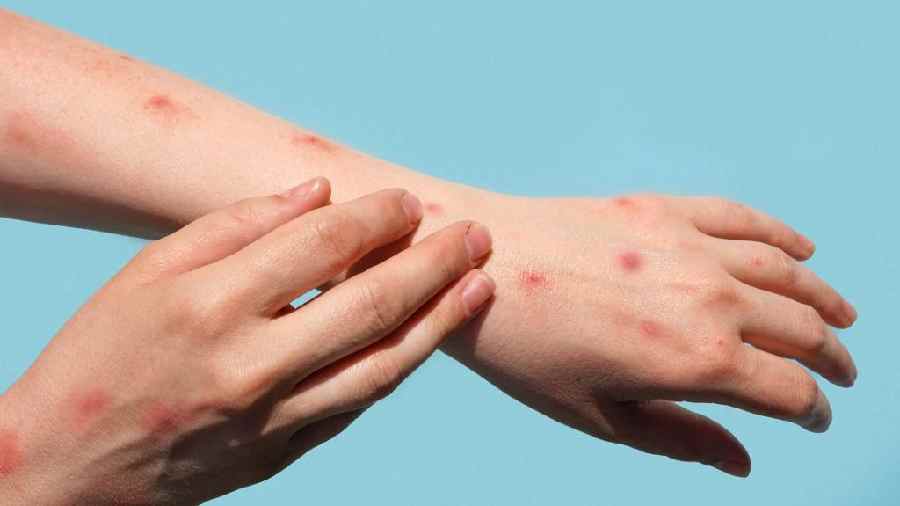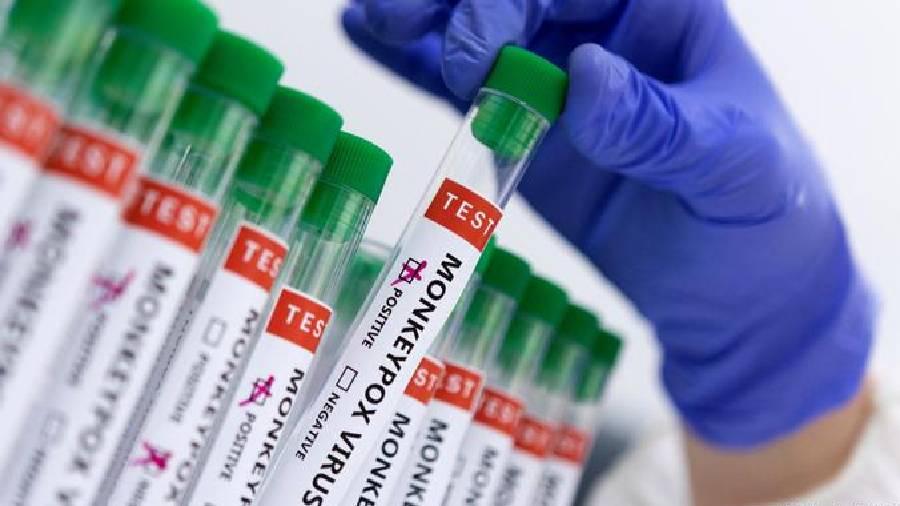Monkeypox can spread from close physical contact regardless of sexual orientation or race and scapegoating or demonising the entire LGBTQ community as 'spreaders' will be a repeat of the mistake made during the AIDS epidemic, healthcare professionals and activists have said.
The monkeypox outbreak has raised widespread fear for the LGBTQ community amid reports of the disease being traced among men having sex with men.
Indian equal rights activist Harish Iyer said, "Monkeypox doesn't just spread in the LGBTQ community."
"It happened in the community when there was pride month going on and there were more events in the community. It is just an episode of everyone going to a wedding and then getting Covid. So you need to look at them as victims and not perpetrators," Iyer told PTI.
He further said, "The monkeypox outbreak is already stigmatising the community and people who developed fever and are scared to go for a medical test."
"Even AIDS was called a gay-related disorder because it was believed to spread in gays only. But even heterosexuals can have multiple partners."
"WHO has a precedent. They know what happened during the AIDS epidemic and their cautionary message could have been more clear. They could have been more careful with that. Why do they assume that heterosexuals don't have multiple partners," Iyer said.
The World Health Organisation (WHO) issued a public health advisory stating that "some cases (of monkeypox) have been identified through sexual health clinics in communities of gay, bisexual and other men who have sex with men".
The world health body also asked men having sex with men to limit their partners.
Trans-community health expert Anmol Singh said, "There is a risk that people will now start distancing themselves from the community which will further isolate them."
"Stigmatised thinking that we have more sexual partners or we are more into sex work than any other straight person will create more negativity," Singh said.
Healthcare professionals have also clarified that monkeypox can spread from close physical contact regardless of sexual orientation or race.
Dr Somesh Gupta, professor in the Department of Dermatology and Venereology at AIIMS, Delhi, said, "The Covid pandemic seems to have galvanised the efforts of the mainstream media to report on the latest developments in healthcare."
"But without the temperament of a medical professional, it gets weaponised for sensationalism," he said.
"This is happening again, this time to Monkeypox; a disease which is clearly transmitted not just sexually but also by close contact, including skin-to-skin and skin-to-cloth such as in a family living together or friends meeting for lunch," Dr Gupta said.
"Unfortunately, it (monkeypox) is endemic in Africa, a continent largely ignored in regard to their knowledge. With the surge of new cases, it has started being identified in the homosexual and bisexual circles before others as it involves intimate skin-to-skin contact. But it has also been found in semen samples," he added.
Starting with a high-grade fever, sore throat, painful swellings in the groins and rectal pain, patients develop the characteristic at a later stage.
But sometimes, there are imperceptible fluid-filled blisters over the face, palms, soles and ulcers in the mouth and genitals which remain infectious till the lesions dry and the crusts fall off with new skin forming underneath.
"If we aren't careful, it would be the HIV-AIDS story repeated, a deja vu. Stigmatized and isolated, the patients would not report symptoms and seek treatment, leading to further transmission while the misinformed majority heterosexual population and even health departments mistakenly assume that they are not at risk," Dr Gupta said.
Dr Satish Koul, Director, Internal Medicine, Fortis Memorial Research Institute, said, "Stigmatisation can quickly disable evidence-based response by stoking cycles of fear, driving people away from health services, impeding efforts to identify cases and encouraging ineffective, punitive measures."
"We should urge media outlets, governments, and communities to respond with a rights-based, evidence-based approach that avoids the stigma."
"Stigma and blame undermine trust and capacity to respond effectively during outbreaks like this one," Dr Koul said.
Raj Mariwala, Director, Mariwala Health Initiative, said, "It is very important to look at public health messaging critically."
"Instead of scapegoating or demonising entire communities as 'spreaders' or using the label of suspects, it is important to focus on accessible and affirmative ways to talk about how to protect oneself while being accurate about how the virus is transmitted."
"Transmission primarily happens through close bodily contact, regardless of sexual orientation or gender. This is as relevant for any tight-knit social network and not just the LGBTQIA communities. Else, we will risk the widespread discrimination that took place due to health messaging around HIV AIDS," he said.
Dr Sumol Ratna, Assistant Professor, Noida International Institute of Medical Sciences, said, "People who identify as transgender or who have gender differences may be more susceptible given the current monkeypox outbreak."
"It's crucial to avoid stigmatising gay and bisexual men or Africans as disease carriers. Although we may be detecting clusters, particularly in some populations, viruses do not care about a person's sexual orientation, religion, or race. Keep your distance from someone who is exhibiting symptoms," he said.












